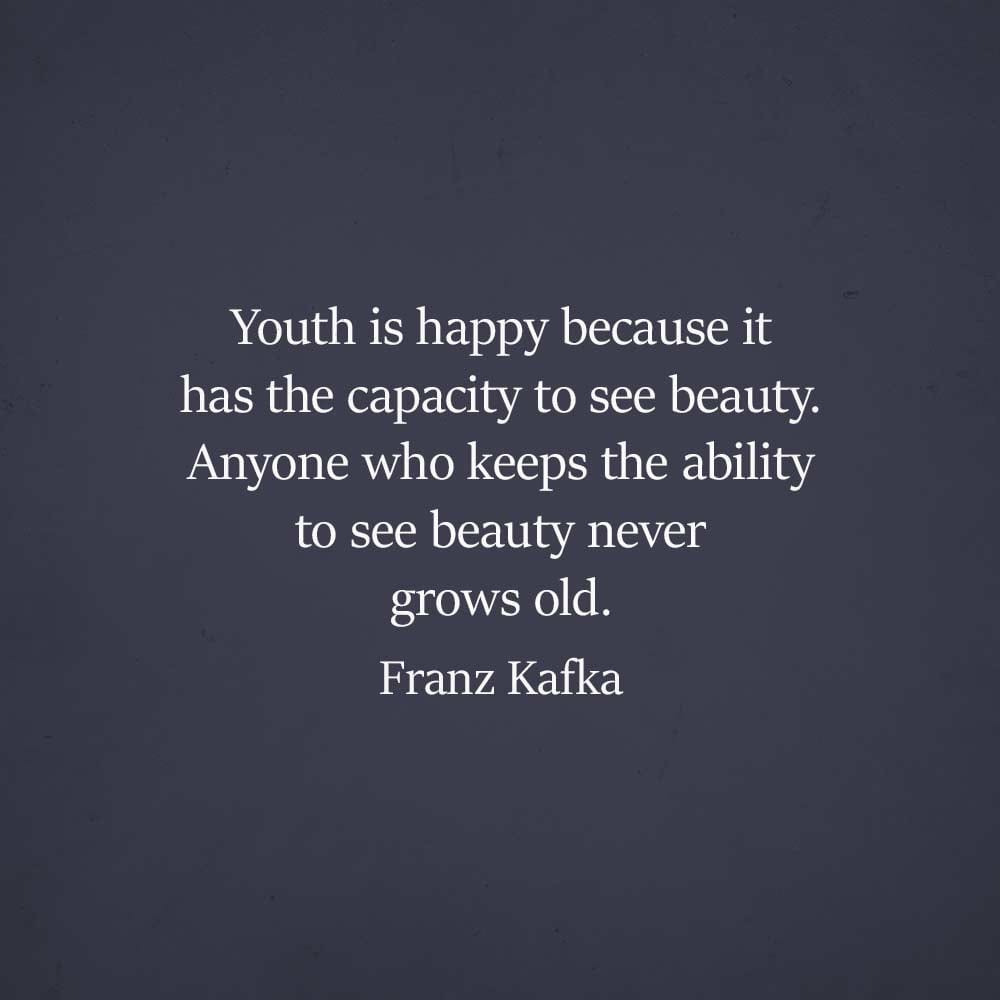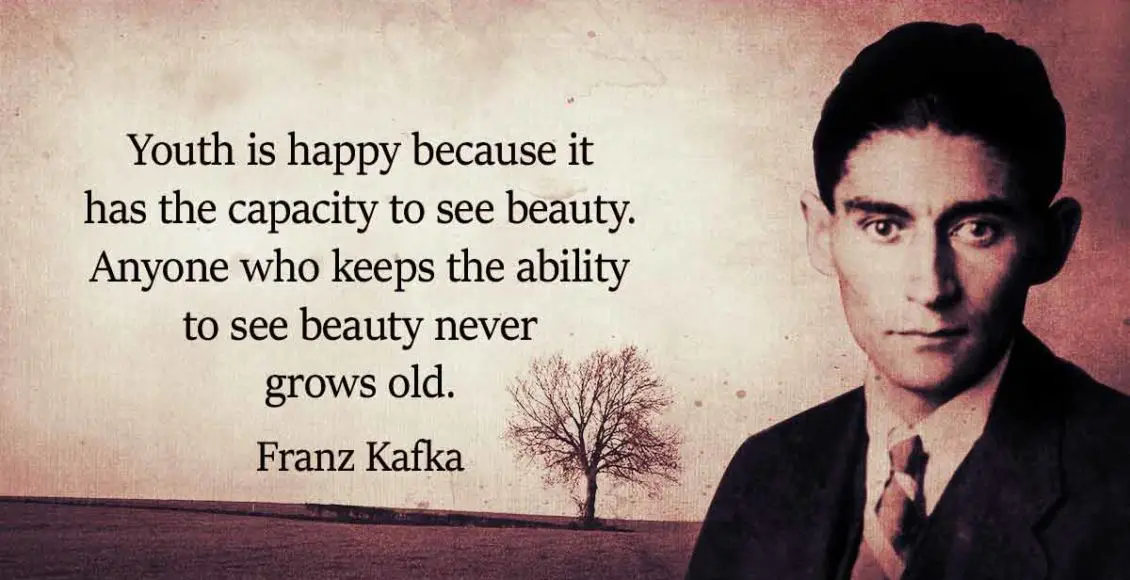Franz Kafka came to this world on 3 July 1883 and tragically left it on 3 June 1924 at the age of forty. His life was cut short by tuberculosis.
A German-speaking Bohemian Jewish novelist and short-story writer, Kafka is widely regarded as one of the major figures of the early 20th-century literature. Today, Franz Kafka is one of the most acclaimed practitioners of absurdism that the world of belles-letters has ever known.
“Everything I leave behind me is to be burned unread…”
Sharing with us interesting facts about Franz Kafka, fellow writer and literature aficionado Brian Hoey writes that “In the style of many an enigmatic literary figure (like Emily Dickinson), Kafka requested that upon his death his unpublished writings be burned unread”. In a letter to his friend, Max Brod, Kafka wrote: “Dearest Max, my last request: Everything I leave behind me … in the way of diaries, manuscripts, letters (my own and others’), sketches, and so on, [is] to be burned unread”.
If Max Brod had granted his friend’s request, the world would never have known about The Trial, Metamorphoses, or The Castle.
About twenty notebooks and some 35 letters written by Kafka survived with his last mistress, Dora Diamant, but in 1933 these were seized by the Gestapo.
To the above parallel that Hoey draws between Kafka and Dickenson, I’d like to add that his attitude towards his own writings resembles, in a way, that of J. D. Salinger – a maniac perfectionist, who destroyed many of his writings considering them unworthy of publication. Yet, in his will, Salinger stated that a number of his works shall be published post mortem.
In 2019, his widow, Colleen O’Neill, and son Matt Salinger announced that “all of what he wrote will at some point be shared”, but that it was a big job and not yet ready.
Posthumous claim to fame
Kafka took up an insurance job to support his existence, while he was constantly looking for ways to make enough money so that he could give himself fully to writing. One such idea of his involved writing guidebooks for traveling around Europe for cheap.
In that, he certainly was ahead of his time, as now the book market is flooded with tons of such writings, and authors like Nomadic Matt have made a small fortune out of them.
Like many other authors, Kafka’s ascent to fame happened after his death. One of the most original acknowledgments came from poet W. H. Auden, who called Kafka “the Dante of the twentieth century”. His name has also given literary critics the adjective Kafkaesque, which means extremely baffling, bizarre, or illogical.
All’s well that end well
Kafka was very practical from an early age. He used to study Greek at school and, according to Hoey, Kafka and some of his classmates managed to bribe their Greek teacher’s butler into stealing a copy of the test from his desk.
Not surprisingly, the whole gang passed with high grades, although some of the weaker students intentionally made some mistakes to keep up the ruse. All’s well that ends well – as a result of his class’s high grades, their teacher was granted a commendation.
Irrational fear of mice
Because of Kafka’s gigantic contribution to the world’s literature, we can say he was as big as an elephant in the field of belles-lettres. In this path of thought, Hoey’s revelation that the writer was terrified of mice should not surprise us much. Though he acknowledged the ungrounded nature of his fear, Kafka could not get over it.
Eating peculiarities
At some point in his life, Kafka got infatuated with “economic nutritionist” Horace Fletcher, who maintained that so as to get the most out of every bite, one should chew their food at least one hundred times before swallowing it. Now we know that this is not true, but back then this idea appeared very appealing to famous writers like Sir Arthur Conan Doyle and Henry James, besides Kafka.
Franz and Ottilie
Franz Kafka was born into a middle-class, German-speaking Jewish family in Prague and from an early age, he formed a strong personal bond with his sister Ottilie “Ottla” Kafka. She was also his closest person and supported him in times of trouble. The beauty of Ottla and Franz’s relationship is comparable to that of the bond between great artist Vincent Van Gogh and his brother, Theo.
Kafka and his women
Kafka’s love life was as controversial and ambiguous as his writings. According to his close friend, Brod, Kafka had an insatiable sex drive and his biographer Reiner Stach describes him as a womanizer obsessed with a constant fear of sexual failure. In his twenties, Kafka used to frequent Prague’s brothels.
Kafka did not have particularly high self-esteem. In fact, he thought the others found him mentally and physically repulsive. Kafka’s image of himself appears to have contradicted the general opinion that he was quite handsome and had a dry sense of humor.
Despite his numerous relationships with women, Kafka never married, nor did he leave any offspring. Curiously, he got engaged twice to the same woman, Felice Bauer. According to Kafka’s biographers Stach and James Hawes, the writer got engaged a third time around 1920 to Julie Wohryzek – a hotel chambermaid of modest background.
Although the two moved in together and announced a wedding date, the marriage never happened. Before the big day, Kafka eloped with another woman.
Kafka’s ambiguous style
Franz Kafka is one of those writers, whose ambiguous writing style makes their writings particularly difficult to translate. As an example, Brian Hoey gives, the opening line to Kafka’s most famous work, Metamorphosis: “One morning, when Gregor Samsa woke from troubled dreams, he found himself transformed in his bed into a horrible vermin.”
Here, the reader is left wondering just what, exactly, Gregor Samsa had become.
In this path of thought, the eleven great quotes by the master of absurdity, Franz Kafka, will make you question everything!
1. He is terribly afraid of dying because he hasn’t yet lived. – Franz Kafka
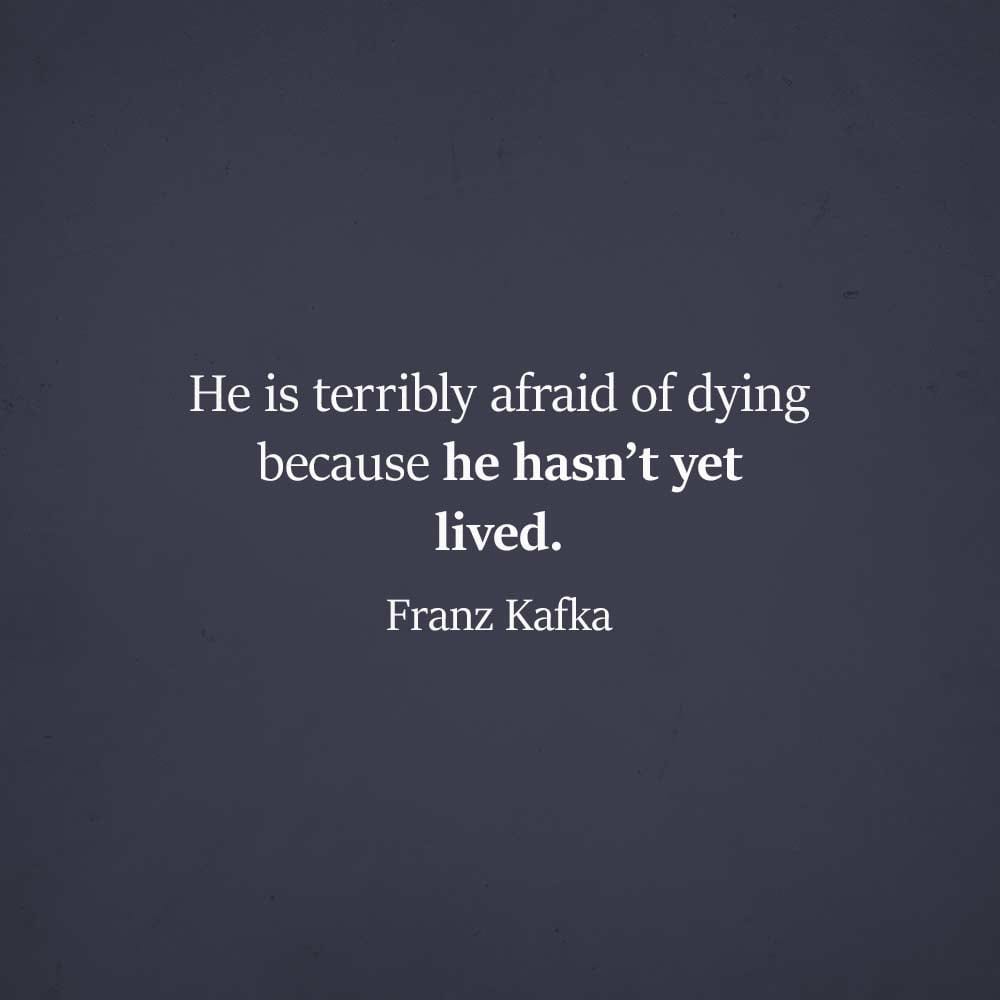
2. By believing passionately in something that still does not exist, we create it. The nonexistent is whatever we have not sufficiently desired. – Franz Kafka
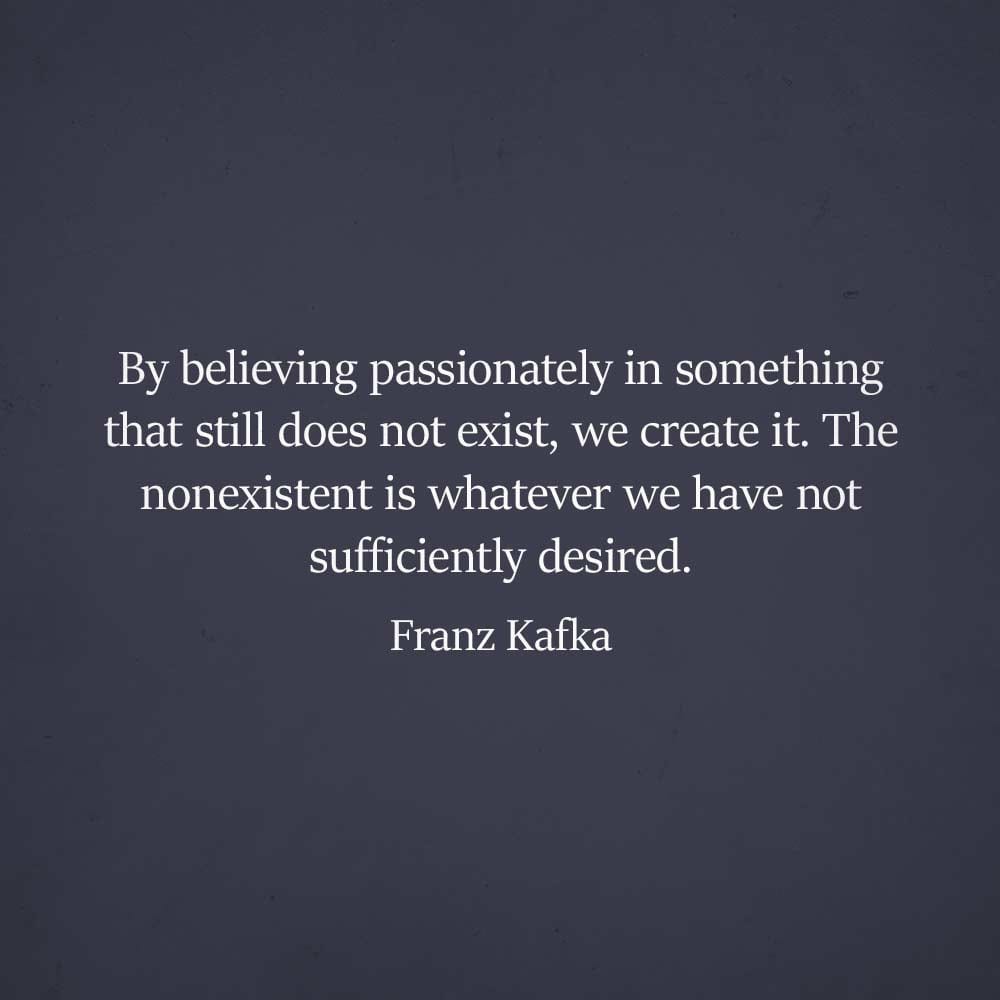
3. I can love only what I can place so high above me that I cannot reach it. – Franz Kafka
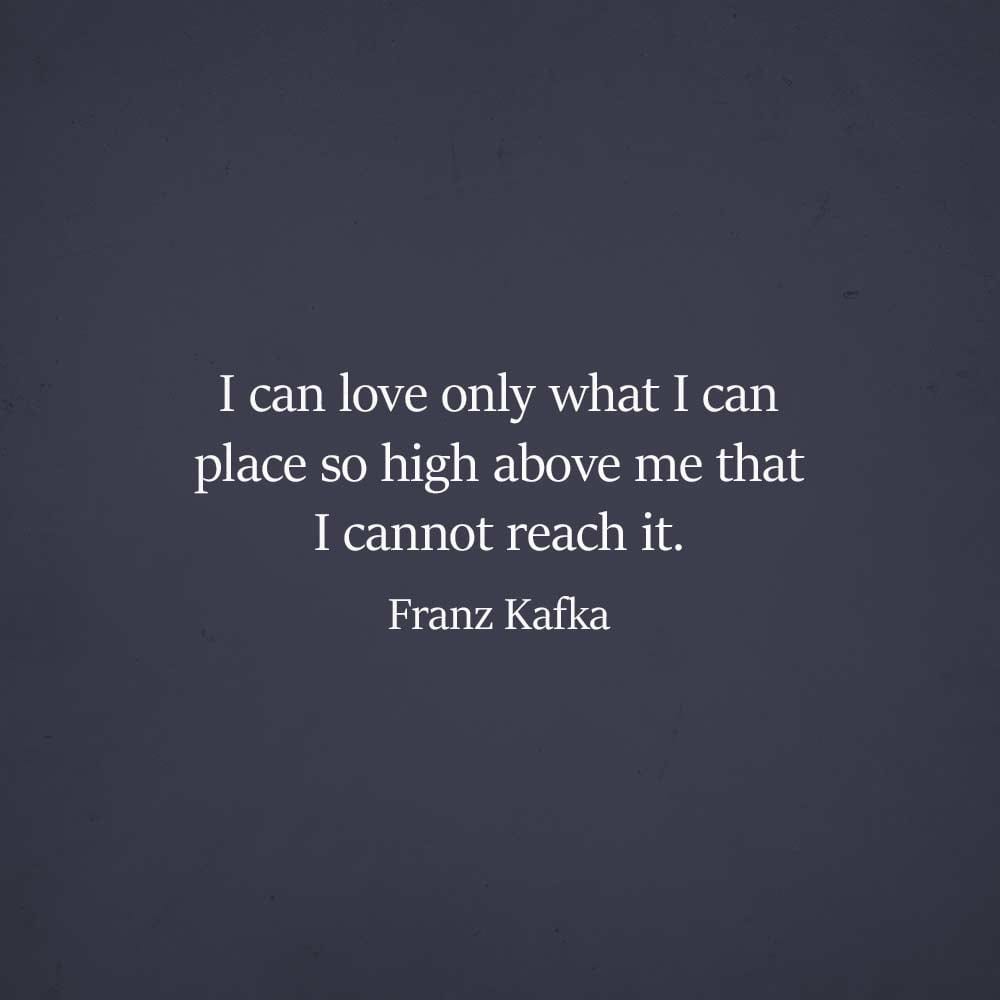
4. There are two cardinal sins from which all others spring: impatience and laziness. – Franz Kafka
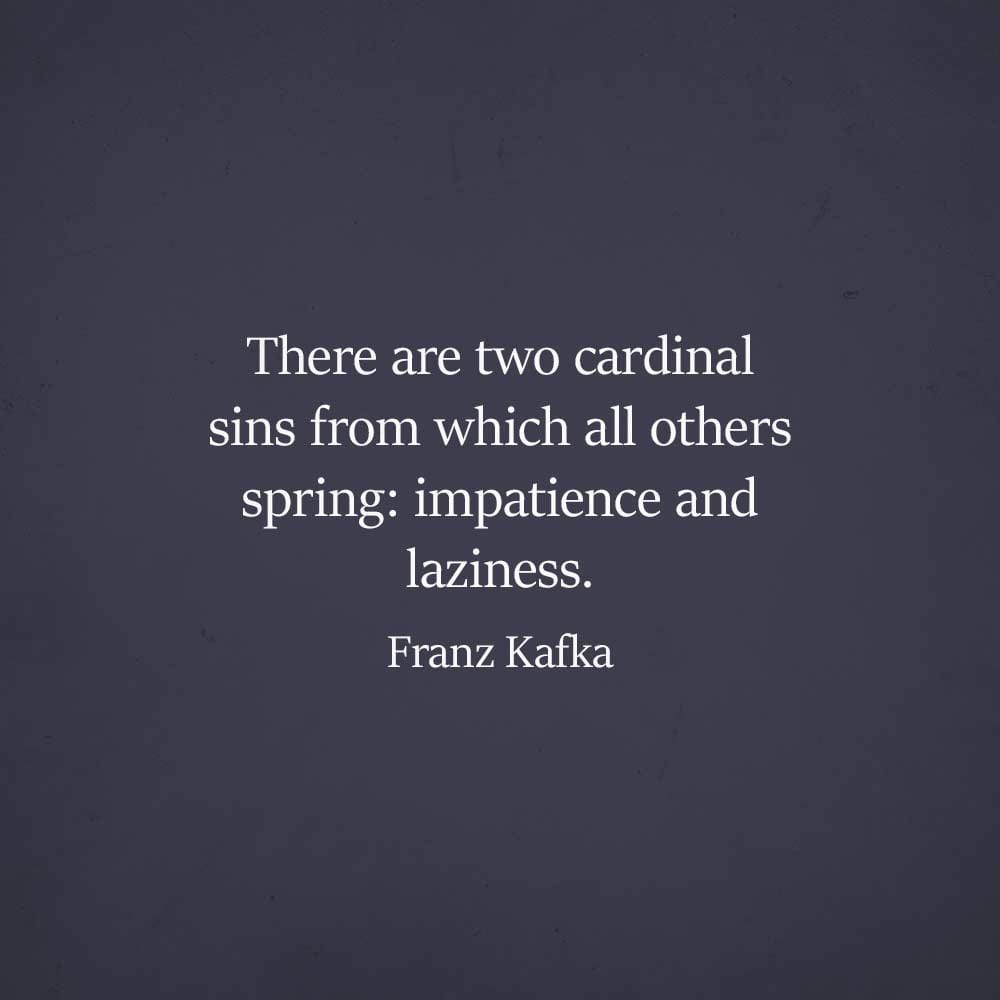
5. Do not waste your time looking for an obstacle – maybe there is none. – Franz Kafka

6. Better to have, and not need, than to need, and not have. – Franz Kafka
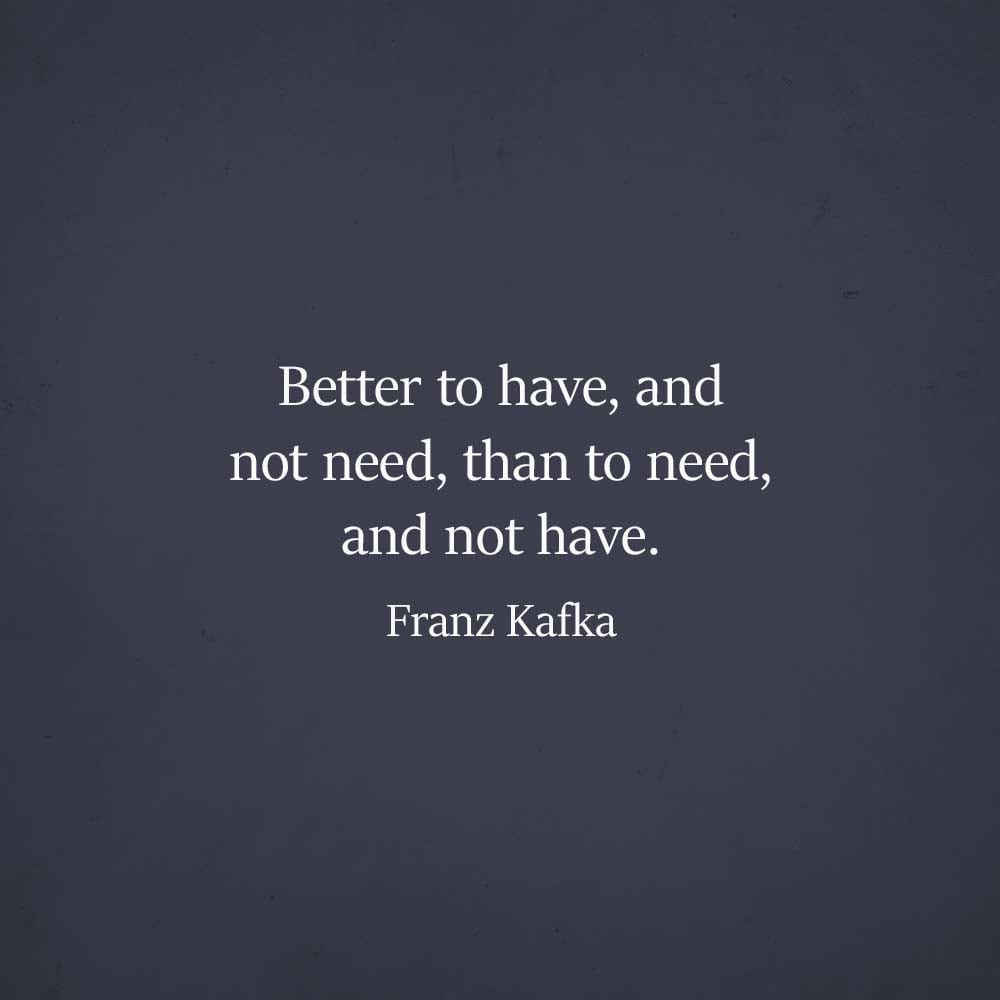
7. Start with what is right rather than what is acceptable. – Franz Kafka
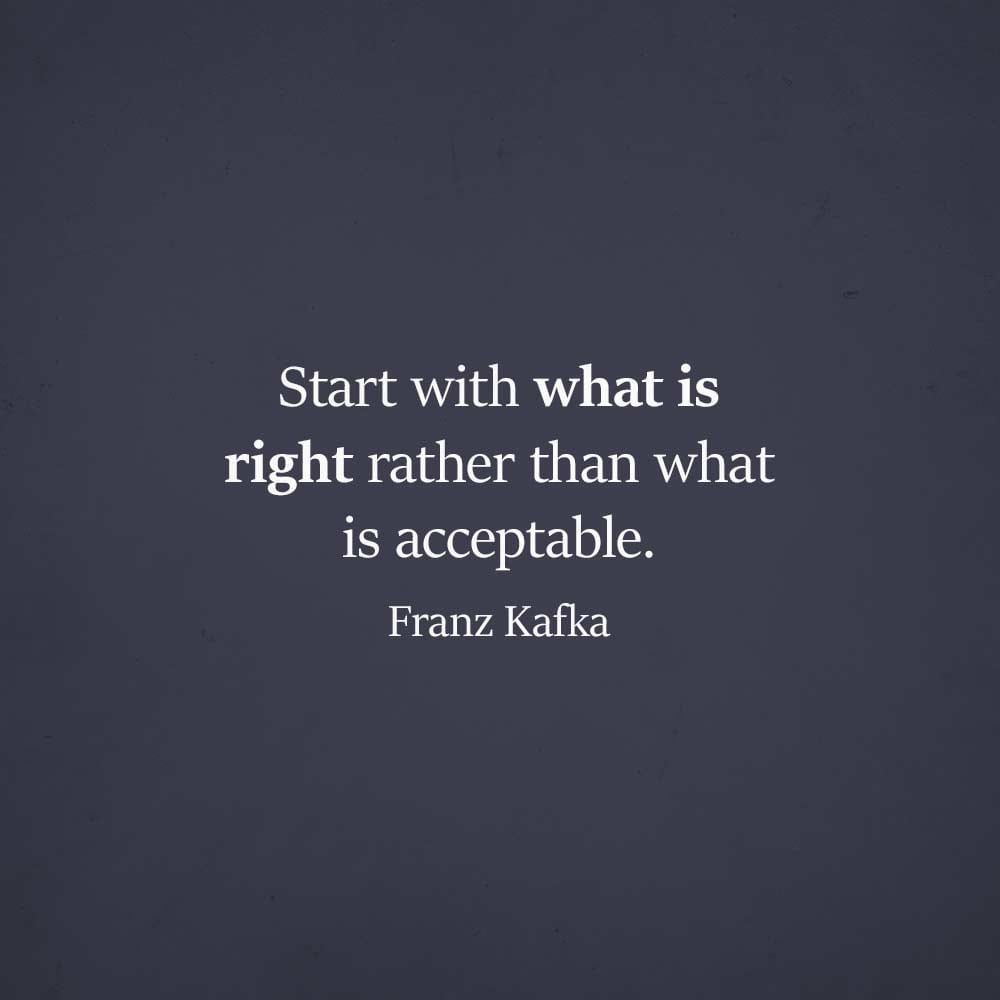
8. I’m tired, can’t think of anything and want only to lay my face in your lap, feel your hand on my head and remain like that through all eternity. – Franz Kafka
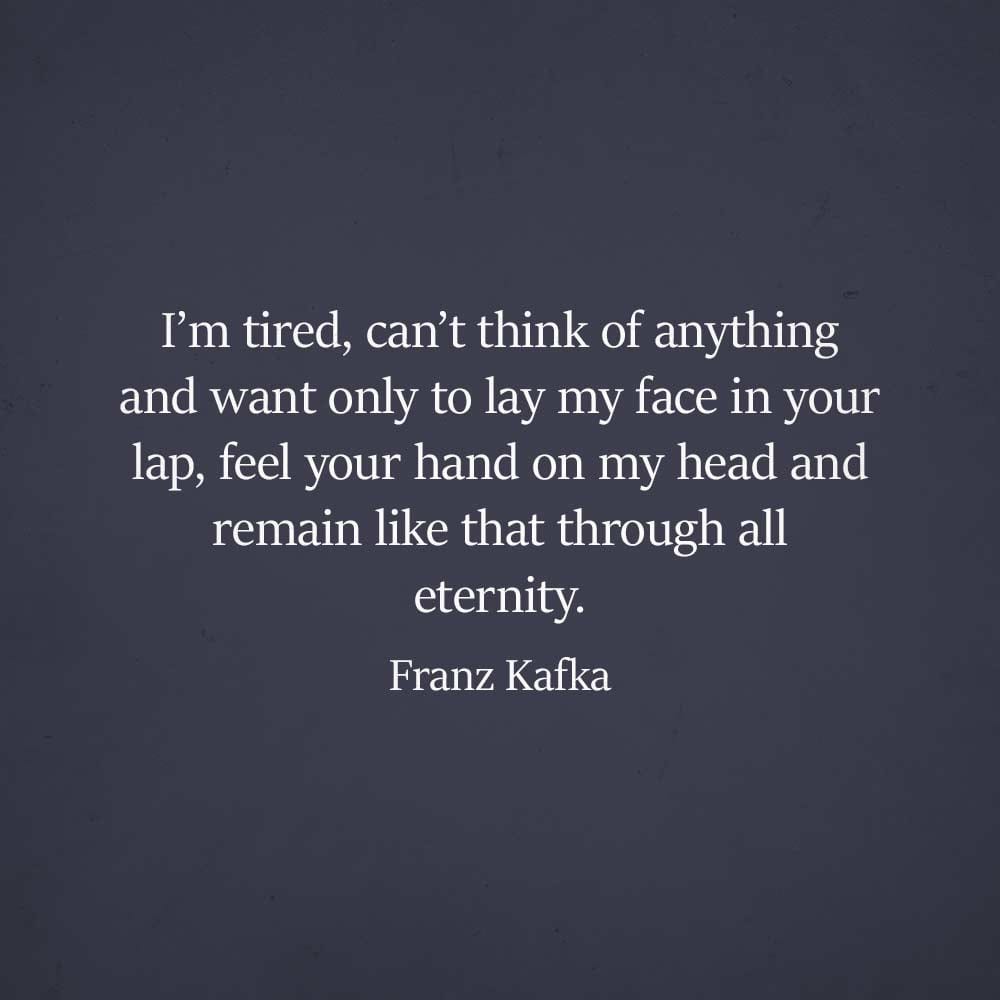
9. They’re talking about things of which they don’t have the slightest understanding, anyway. It’s only because of their stupidity that they’re able to be so sure of themselves. – Franz Kafka

10. Association with human beings lures one into self-observation. – Franz Kafka
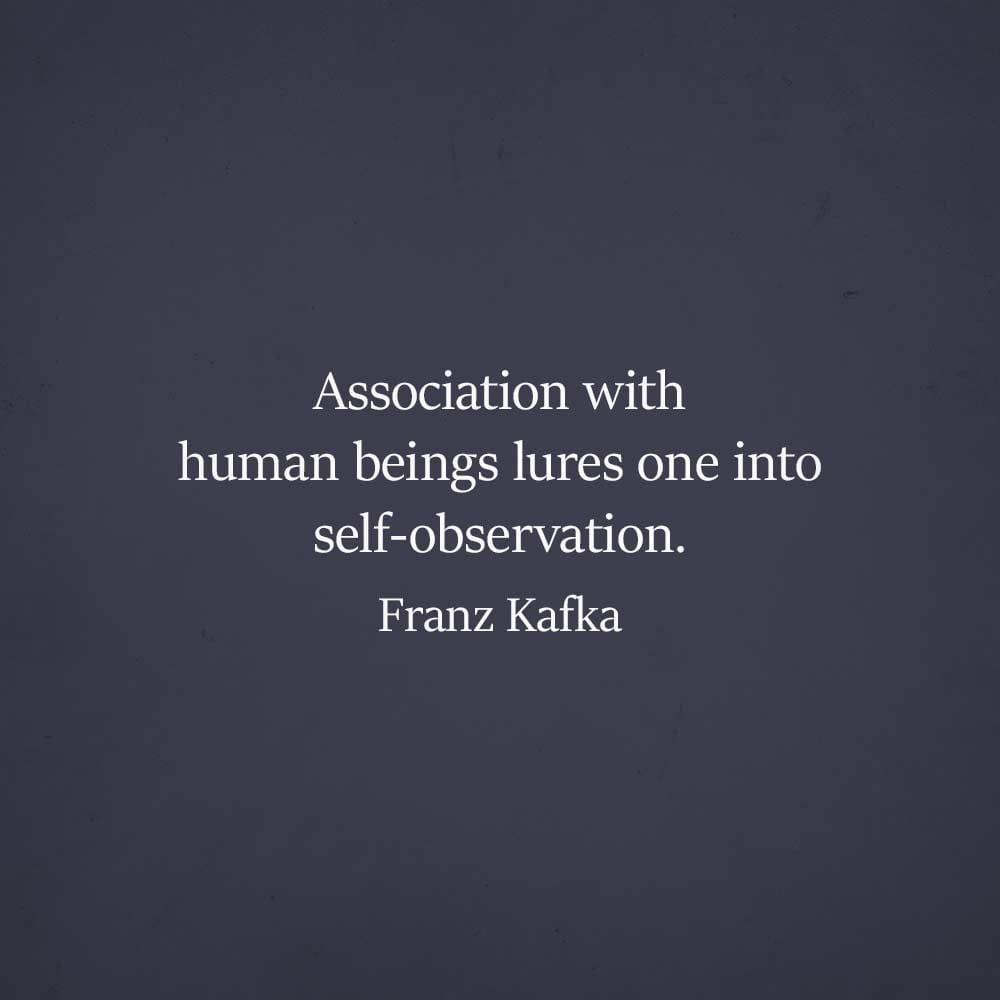
11. Youth is happy because it has the capacity to see beauty. Anyone who keeps the ability to see beauty never grows old. – Franz Kafka
